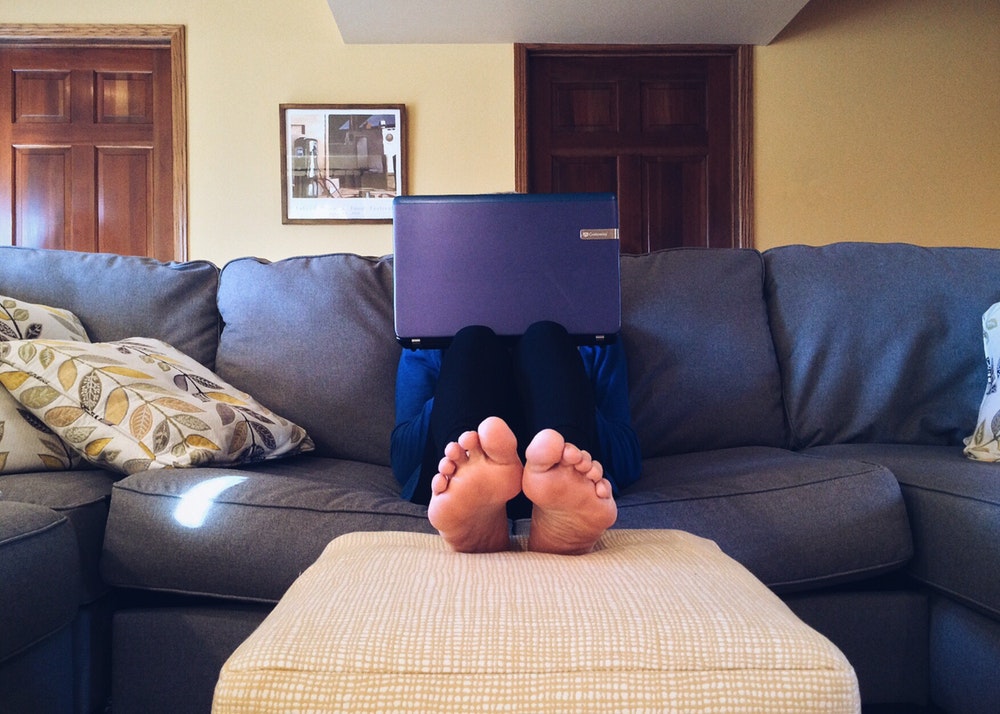World Health Organization (WHO) has declared COVID-19, aka the coronavirus, a pandemic.
Meanwhile, Delaware announced its first presumptive case of the virus and the University of Delaware is cancelling classes through March 23, with online classes scheduled when the semester resumes. Due to a staff member recently returning from overseas travel, the Community Education Building in downtown Wilmington (home of Kuumba Academy and Great Oaks Academy charter schools) will be closed until March 16. The governor’s town halls are now virtual.
On Twitter, #CancelEverything is trending.
While employees are not required to stay home and work remotely in Delaware at this point, you might choose to go remote for a bit if it’s an option.
But if you’re not used to working remotely from home, it might also be a major adjustment. It could sound like a working staycation, but if you want to be productive, it’s better to look at remote working as regular workdays with different scenery.
As a remote worker myself — I normally work both from my home office and The Mill — here are a few tips for getting work done at home:
1. Don’t sleep in.
This is going to be really tempting, especially if you’re used to a commute. I won’t lie, I’ve stayed in bed until five minutes before the start of the work day, and it’s an easy way to throw your whole day off. Get up at the regular time and do your regular before-work routine (including getting dressed). If you have extra time from the lack of commute, enjoy it over a more relaxed breakfast instead of in bed.
I try to treat it like a very short commute to an office of one, with almost all normal morning routines in place
— manic pixie dream dad (@heydenberk) March 11, 2020
2. Find a quiet place.
If you don’t work remotely regularly, you may not have a designated work space at home. Your bedroom isn’t ideal for a home office, but if the alternative is a common room with other family members or roommates doing their (distracting) things, it will have to do. Preferably there is somewhere other than the bed to work.
3. Designate breaks.
If you take breaks at noon and 2 p.m. at the office for lunch and coffee, take the same length breaks at noon and 2 p.m. at home.
4. Schedule and organize.
Even for people who work at home regularly, keeping a strict schedule can be a challenge. Days when things are all planned out are always more productive.
5. No TV.
There are people who work at home who claim they’re productive with the TV in the background. They’ve learned to tune it out like white noise — but it’s better to use an actual white noise app or low background music if you can’t work in silence. Putting on cable news with its 24-hour coronavirus coverage is only going to be more distracting.
i have been working from home since 2011 and i can tell you it's fine, you'll be fine, just don't do what my one friend did and start watching law & order marathons
— Sara Wachter-Boettcher (@sara_ann_marie) March 10, 2020
6. “Clock out.”
I break this rule from time to time, but, at five o’clock (or whenever your regularly leave work), close the laptop, stop taking calls and shift to family/home time. Working at home doesn’t mean you’re always on call.
###
To stay on top of the current coronavirus updates, go to Delaware.gov’s COVID-19 page. If you’ve traveled to China, Italy, Iran, Japan, or South Korea within the last 14 days, call the information line at 1-866-408-1899 (TTY at 1-800-232-5460) or email dphcall@delaware.gov.
Join the conversation!
Find news, events, jobs and people who share your interests on Technical.ly's open community Slack

Delaware daily roundup: Early-stage loan help; Jobless rate drops below 4%; $700k grant for industrial park

Delaware daily roundup: Greentech terms to know post-Earth Day; generative AI's energy costs; anti-AI deepfake legislation

Delaware daily roundup: Delmarva Power vendor stats; DelDOT's $15M federal grant; 50 best companies to work for


